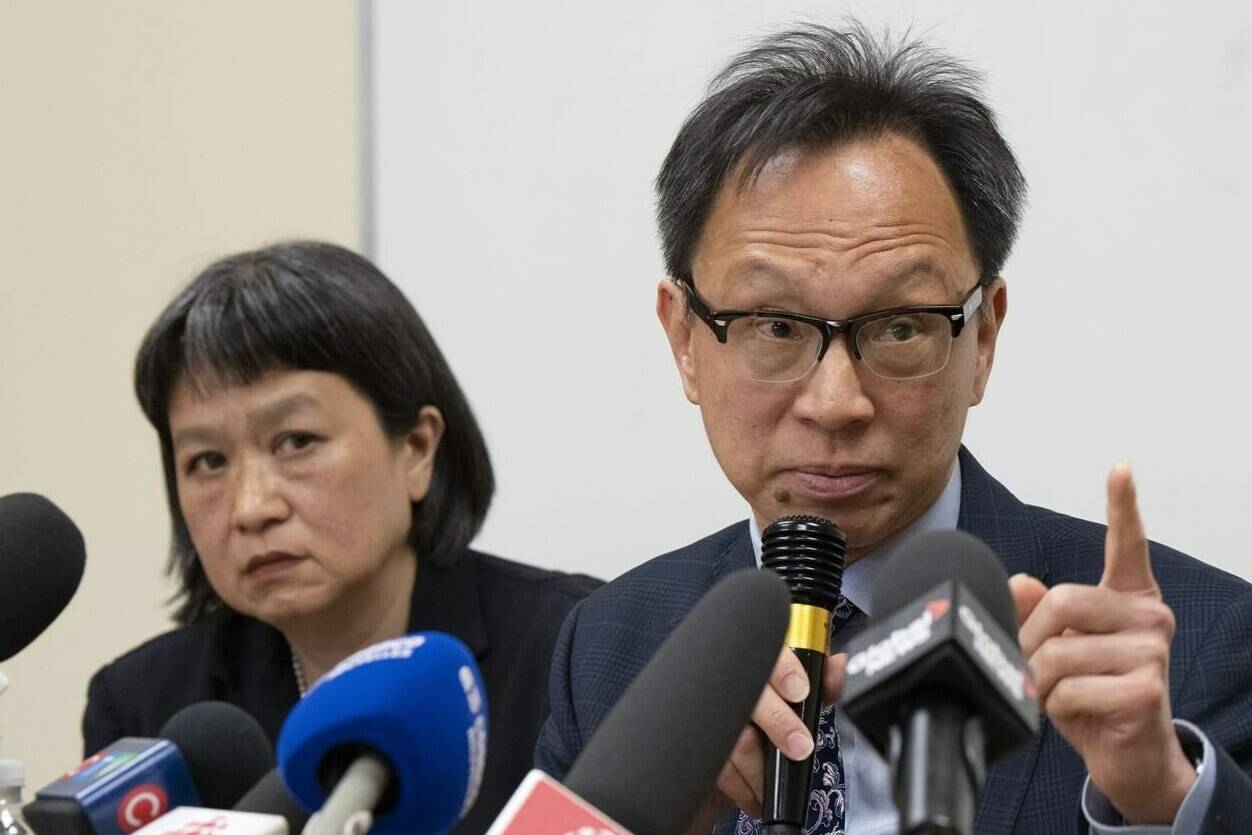A Canadian senator is defending two Montreal-area Chinese community organizations that have been accused by the RCMP of hosting secret Chinese government police stations.
The RCMP should bring forth their evidence or leave the groups alone, Independent Sen. Yuen Pau Woo told reporters in Montreal.
“Provide information, clarity, and in the meantime, don’t create more problems for the community,” Woo said.
Woo, an Independent senator representing British Columbia, called for fairness, due process and the rule of law. He said the two community groups — which he said provide assistance to Quebec’s Chinese community — have been found guilty of allegations that haven’t been explained.
“It has caused members of the community to hesitate to come and seek services and they suffer — not you … not the RCMP, but the individuals who would come here for services and who are hesitating to come because they worry about what might happen if they come here,” Woo said.
Woo made the comments during a news conference with members of Montreal’s Chinese community at the office of one of the groups targeted by the RCMP, Service à la Famille Chinoise du Grand Montreal. Members called for an end to the investigation, describing it as a sword of Damocles hanging over the community. Some mused about seeking damages in court.
In mid-March, the RCMP said that the organization, along with Centre Sino-Quebec de la Rive-Sud, located on Montreal’s South Shore, hosted Chinese government agents who allegedly harassed members of the city’s Chinese community.
Public Safety Minister Marco Mendicino told a parliamentary committee last week that the RCMP had shut down the so-called police stations in Montreal, Toronto and Vancouver.
The RCMP said Friday they continue to actively investigate reports of criminal activity in relation to the so-called “police stations.”
“It is important to note that some of the activity the RCMP is investigating was occurring at locations where other legitimate services to the Chinese Canadian community were, or are being, offered,” said Cpl. Kim Chamberland in an emailed statement.
“The RCMP will not comment on specific locations as investigations are ongoing. However, the RCMP can confirm that our national response has disrupted illegal activity.”
The Spanish human rights organization Safeguard Defenders, which has identified more than 100 of the alleged police stations in more than 50 countries, has said the stations serve to “persuade” people who Chinese authorities claim are fugitives to return to China to face charges.
The Chinese government has denied those claims.
Woo pushed back against that Spanish group on Friday, asking why authorities were taking the word of a foreign organization, “making allegations, grave allegations that impact Canadians.”
He said that neither he nor the groups under RCMP investigation know the details of what they are being accused of or what even constitutes a clandestine police station.
“All of us here are opposed to foreign interference, all of us, all of us against harassment, intimidation of Canadians and we need to use every tool we have, legal tool to stop foreign interference, harassment and intimidation,” Woo added. “But we cannot do it at the expense of the rights and privileges of our citizens.”
Walter Tom, an immigration lawyer, called it irresponsible to associate the community organizations to illegal practices without backing it up.
“By associating, in such an irresponsible manner, these two organizations with secret police stations, and particularly by flashing the names of these two organizations every time that there are headlines about secret police, is creating an atmosphere of fear,” Tom said.
May Chiu, a family lawyer and head of the Chinatown Roundtable, said all board members of the two organizations have collaborated with the RCMP but have not heard anything from police since mid-March. Chiu, a former executive director of the Montreal centre, said she was unaware of any illegal activities during her time.
She said the staff is made up mainly of women who are social workers, adding that many are fearful and stressed about losing their livelihood.
“It just breaks my heart that they themselves are living very, very precariously right now,” Chiu said.
Sidhartha Banerjee, The Canadian Press

